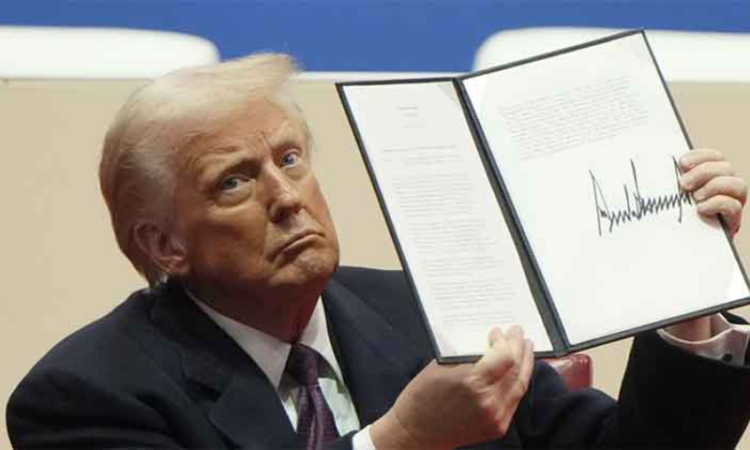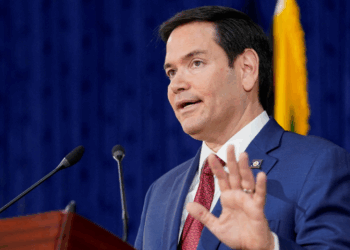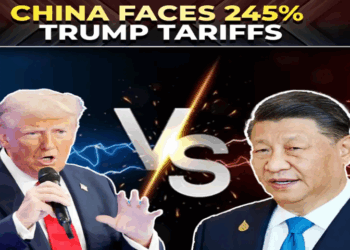Washington, February 10, 2025: Former U.S. President Donald Trump has announced plans to impose 25% tariffs on all steel and aluminum imports, including from Canada and Mexico, with additional trade duties expected later this week.
“Any steel coming into the United States is going to have a 25% tariff,” Trump told reporters aboard Air Force One on Sunday while traveling from Florida to New Orleans for the Super Bowl. When asked about aluminum, he confirmed it would also be subject to the same tariff.
Trump also revealed that he will introduce “reciprocal tariffs” on Tuesday or Wednesday, targeting imports from countries that impose high duties on U.S. goods.
“If they are charging us 130% and we’re charging them nothing, it’s not going to stay that way,” he stated.
While Trump did not provide specific details on the steel and aluminum tariffs or the upcoming reciprocal tariffs, he has previously threatened 25% duties on all imports from Canada and Mexico—a move he paused for 30 days last week. Meanwhile, 10% duties on Chinese imports have already been implemented.
Impact on global trade and financial markets
Financial markets reacted negatively to Trump’s tariff threats on Friday, with stock prices falling amid concerns over rising trade tensions and inflationary pressures.
The announcement has also sparked concern among U.S. trading partners, particularly South Korea, a major steel exporter to the U.S.
- South Korean acting president Choi Sang-mok convened an emergency meeting with senior trade and foreign policy officials to assess the impact on the country’s steel industry.
- South Korea exported $4.8 billion worth of steel to the U.S. from January to November last year, accounting for 14% of its global steel exports.
- The stock prices of major South Korean steelmakers, including POSCO and Hyundai Steel, dropped sharply as markets opened on Monday.
Tariffs on fast-fashion imports delayed
Despite his aggressive tariff stance, Trump announced a temporary delay on import duties for small packages, including goods from fast-fashion brands like Temu and Shein. U.S. customs officials are currently working on mechanisms to effectively impose tariffs on these shipments, which had previously been exempt.
Trump’s latest tariff policies signal a renewed focus on protectionist trade measures—a key aspect of his economic strategy during his presidency. While the administration sees tariffs as a way to pressure trade partners and generate revenue, critics warn that such policies could increase consumer prices and disrupt global supply chains.
With financial markets already reacting, global leaders will be closely watching Trump’s next moves as the U.S. trade war rhetoric intensifies.








